News & Insights
How current market trends are impacting engineering decisions for hotels & resorts
With changing consumer trends and the need to stay competitive, smart engineering is becoming increasingly important for hotels and resorts.
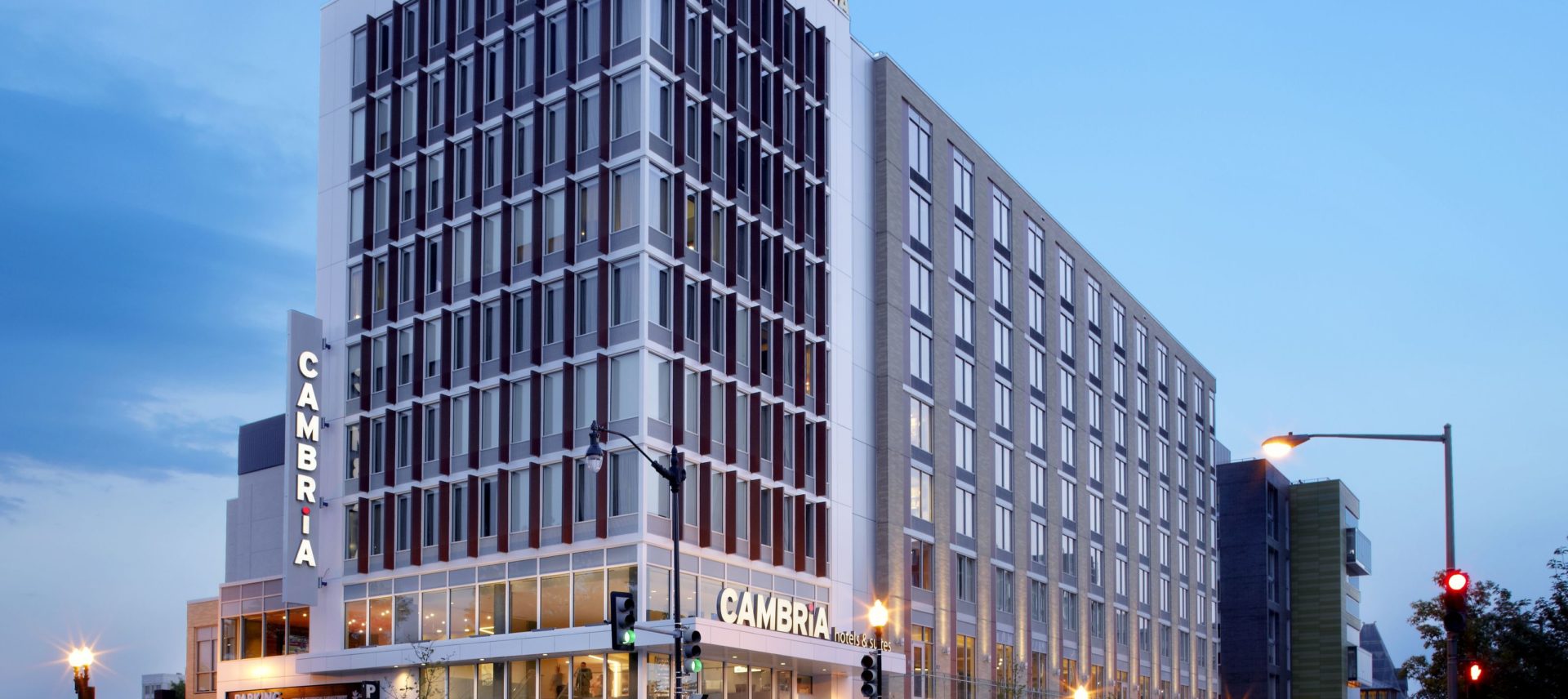
With changing consumer trends and the need to stay competitive, smart engineering is becoming increasingly important for hotels and resorts. But with all the variables owners face in responding to current market trends while managing operational costs, how can owners ensure the decisions they make will serve them well into the future?
The work-from-home model has changed travel patterns and technology demands.
With the emergence of work-from-home models, travelers are taking advantage of their newfound freedom. They aren’t waiting for standard vacation times. They are packing their laptops and going wherever they want to be whenever they want to be there.
This trend has disrupted normal seasonal patterns for the industry, creating challenges in staffing, supplies, and maintenance.
Normally, hotels and resorts use slower periods to perform projects where they can shut down floors at a time. Now, they need to factor in potential lost revenue with the overall costs of a project. It’s no longer enough to minimize disruption on the guest experience; we now work with clients to creatively group and prioritize essential projects to minimize the impact on revenue generation.
In addition to the disruption to travel patterns, working guests have also increased the demand for connectivity speeds. Previously, most bandwidth was sufficient to serve working travelers who wanted to check email in the evenings, now the expectation is support of video calls and the capacity to remote into a server to produce work.
Hotels are investing in technology infrastructure to deliver on these increased demands. In addition to the needs of working travelers, hotel management systems are now converged onto this expanded data infrastructure.
For example, just a few years ago, wireless access points (WAP) were positioned in the hallways with one covering multiple rooms; now there is a WAP in every room. What was once 4-6 WAPS on a floor has now become 40-50.
Safety and hygiene are now top of mind for travelers.
There is a shift in consumer behavior when it comes to prioritizing safety and hygiene. This has always been important to hotels and resorts, but now they are held to higher standards as travelers seek out accommodations that prioritize their health and safety.
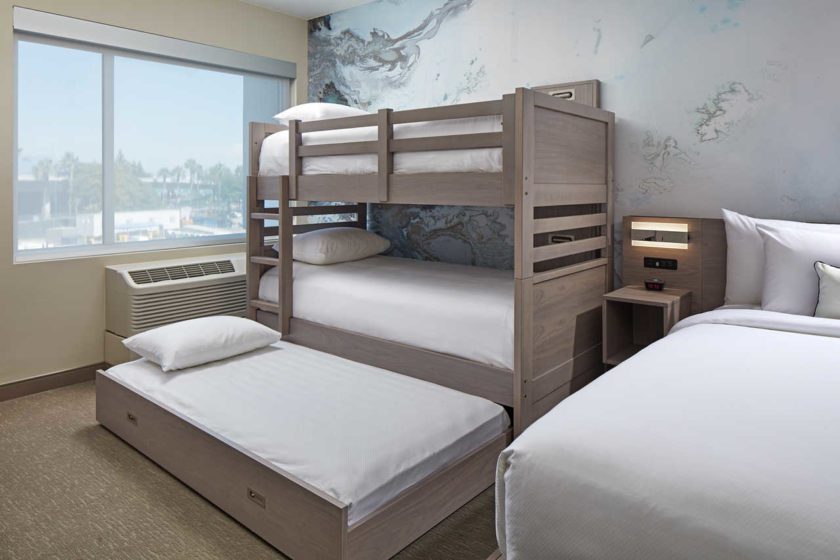
Hotels have responded by introducing strict sanitization policies that implement frequent cleaning of all public spaces with EPA approved disinfectants throughout the day. Hotels are also placing a larger focus on air filtration systems that can filter out potential contaminants from air circulation within rooms or public spaces like lobbies.
As such, we have seen an increase in clients who want to improve the air quality in their facilities. Recently, we provided modifications to the ventilation systems for one of our resort clients in Mexico. The challenge to delivering fresh air in hot and humid climates is mitigating the dampness that can prompt mold and mildew to grow. We designed a fresh air solution with self-balancing dampers to consistently deliver the correct amount of air at low humidity levels.
Hospitality clients are also prioritizing life safety upgrades ahead of guest room renovations because they’ve become so important in the marketplace. In today’s highly litigious culture, they have come to look at life safety and the term “loss prevention” as more beneficial than new amenities.
The next-generation life safety systems offer more features with greater feedback, customization, and control. Conversely, the life span of these systems can be shorter than previous generations of technology. Just as smart phones launch with expanded features, then are replaced by subsequent versions, so do the new chip-driven life safety systems.
Increased demand for sustainability
The hospitality industry has been adapting to the increasing demand for sustainability from travelers. Hotels have responded by implementing a variety of green initiatives across their properties, ranging from water usage to waste reduction efforts.
The benefits to these investments go beyond reducing environmental impact to positioning the brand as conscious and future-forward.
Increasingly, energy management systems are used to automatically manage lights and electronics. The feedback provided by online monitoring gives properties insights to respond operationally to achieve additional savings.
We are also working with clients to achieve energy savings in non-traditional ways.
For example, Salas O’Brien is working on a new hotel that utilizes a variable refrigerant flow system to provide conditioning of the guestrooms. This system is whisper-quiet and extremely water efficient, but our engineers went beyond that to recapture some of that heat to a water source heat pump domestic water heater. So, instead of rejecting all the heat from the rooms to the environment, we are rejecting a good portion of that heat into the domestic hot water system creating free heated water for the client.
We work with different properties to find unique sustainable advantages in their context.
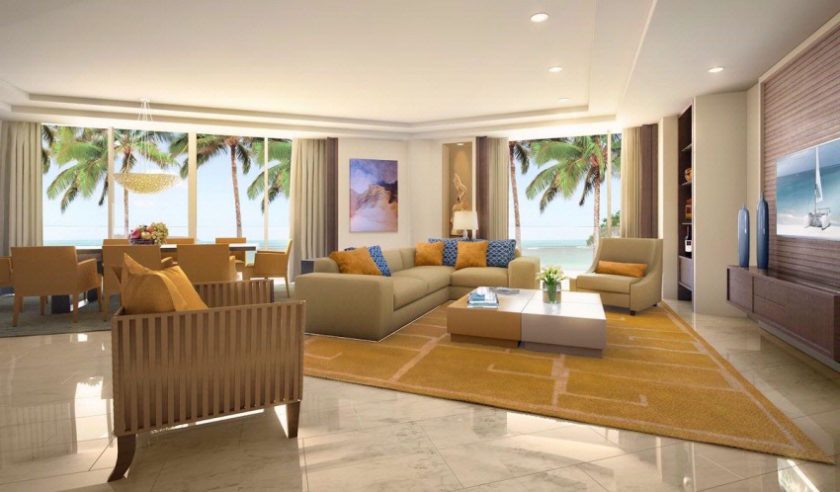
Traveler preferences for contactless interactions and customization
Most major brands have apps that give travelers contactless control over the check-in experience, entry, room controls, and ordering services.
As more travelers begin to rely on this customization, the need for infrastructure to support it grows. Previously, there were spaces that were ignored by the Wi-Fi & cellular coverage, but with the new contactless systems, a dead spot in a parking garage or elevator means getting stuck or having to walk to the front desk for a key.
This expanded need for Wi-Fi coverage is forcing hotels to perform holistic upgrades that go beyond adding WAPs. What was once a component in a rack now requires dedicated rooms with cooling and increased electrical capacity with backup. When you add in the switch from analog to VoIP phone systems, the need for data infrastructure and resiliency grows to make sure the system stays online during power outages.
On the operational side, hotels are finding increased guest expectations for response times when using apps. Mobile ordering can put a lot of strain on existing systems. This requires upgrades to software and POS systems to better manage orders. It also requires additional training for staff to efficiently manage the increased volume and shortened wait times. Data infrastructure systems need to be robust enough, so the team isn’t slowed down.
Engineering for longevity in a changing world
While market trends will continue to fluctuate, the need for high-performance buildings remains steady. Investments made now can enact savings on utilities, increase customer satisfaction, and protect from the burden of deferred maintenance.
Salas O’Brien works with architects and developers to build hotels and resorts across the world. We also work with owners of existing properties to create assessments and phased plans to implement upgrades for structure, mechanical, electrical, plumbing, acoustics, and technology.
Reach out to talk about your project.
For media inquiries on this article, reach out to Stacy Lake.
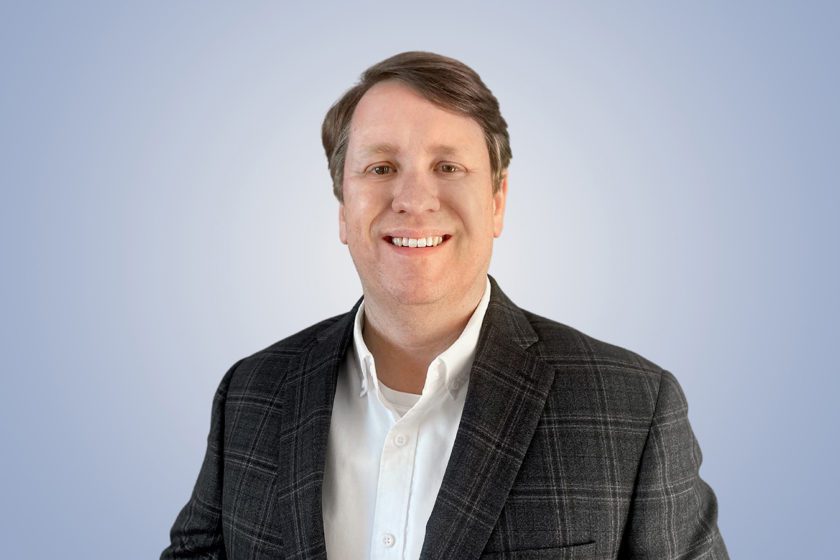
David Bonaventure, PE, CEM
David Bonaventure has spent over 20 years serving the hospitality industry. He helps owners make smart decisions to maximize their investments and keep venues relevant in the marketplace. He has an MBA from the University of Houston and a BS in Mechanical Engineering from Louisiana State University. David enjoys spending time with his family and rooting for the LSU Tigers football team. He serves as a Managing Principal at Salas O’Brien. You can contact him at [email protected].
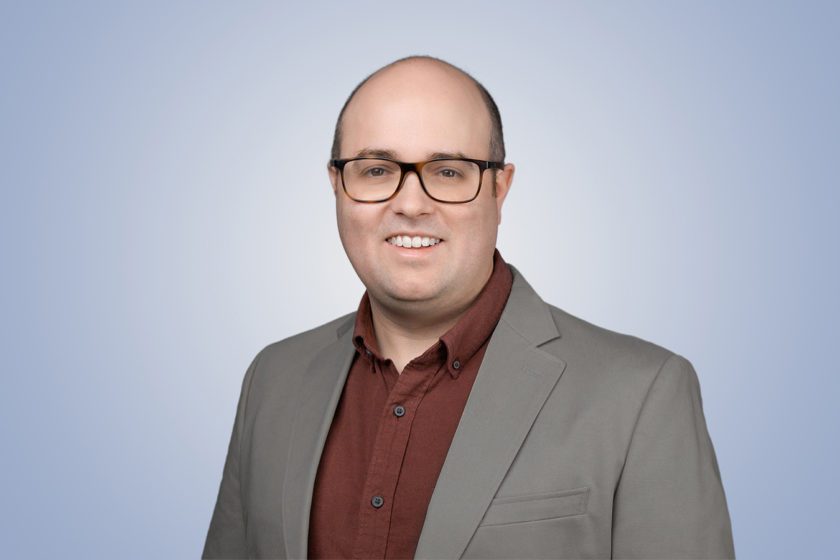
David Battershell, RCDD, CTS-D
David Battershell leads teams to design technology for commercially successful entertainment venues, hotels, and sports venues. He understands the pressures clients face with the rapid pace of change and is adept at designing complex systems reliant on the interaction of many systems (IT, AV, security, DAS, and building management systems). David serves as an Associate Vice President at Salas O’Brien. Contact him at [email protected].